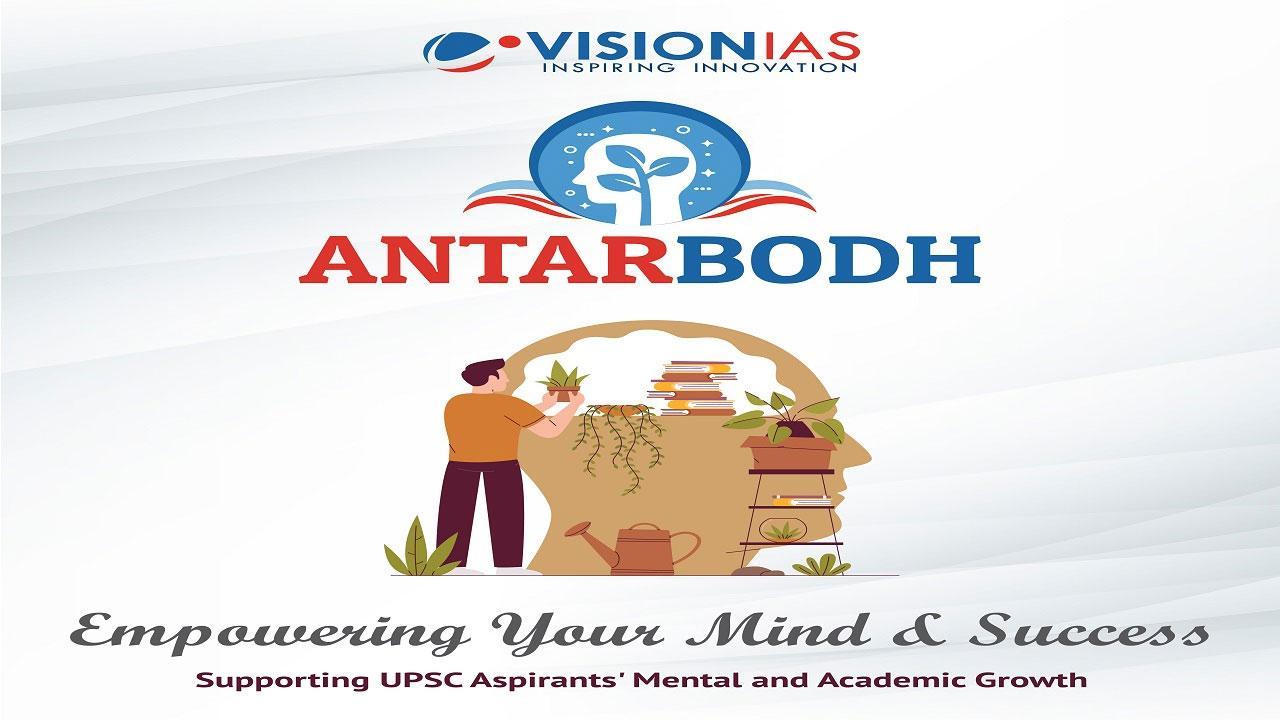The multifaceted nature of the UPSC exam with its vast syllabus, multiple subjects, and different stages leads to a great deal of stress and anxiety.

The Dream of UPSC
For many, the UPSC Civil Services Examination represents more than just a prestigious job it is a dream, a chance to serve the country, and a way to bring meaningful change to society. The allure of becoming a civil servant, contributing to nation-building, and representing the government in various capacities draws thousands of aspirants each year. This noble pursuit, however, is far from easy and comes with a series of hurdles that test not only one's knowledge but also mental resilience.
A Journey Filled with Academic and Non-Academic Challenges
When students embark on the UPSC journey, they quickly realize that it’s a long and demanding path. The preparation can span multiple years, involving extensive study across a vast range of subjects. While the academic challenges are widely acknowledged, what often goes unnoticed are the non-academic challenges that can make or break an aspirant’s journey. These challenges add layers of complexity, intensifying the already daunting task of exam preparation. It includes -
- Fear of Failure: Aspirants invest significant time, resources, and the prime years of their lives often the most economically viable stage into UPSC preparation. This creates an overwhelming fear of failure, as the stakes are incredibly high.
- Stress and Anxiety: The multifaceted nature of the UPSC exam with its vast syllabus, multiple subjects, and different stages leads to a great deal of stress and anxiety. Balancing preparation for different stages can overwhelm even the most dedicated students.
- Lack of Motivation and Confidence: Often, aspirants set ambitious study targets, but when these targets are not met, their confidence can take a hit. This failure to meet self-imposed goals leads to a gradual decline in motivation, making the journey feel even more arduous.
- Family and Peer Pressure: Aspirants frequently experience unintentional pressure from family members and peers. The constant question of "How is your preparation going?" or seeing others succeed can intensify the sense of urgency and stress.
Mental Resilience: A Key Component of Success
What’s often overlooked in the UPSC preparation journey is that academic goals cannot be achieved without the right mindset and strong emotional health. While mastering subjects like Polity, Economics, or History etc. is crucial, success in UPSC is not just about absorbing information it’s about how well an aspirant can handle stress, pressure, and uncertainty.
Here’s why focusing on mental resilience is essential for aspirants:
- Conflict Management: Learning to handle internal and external conflicts is vital. Aspirants must manage disagreements with themselves (like balancing study hours with personal needs) and external pressure (family, peers, or even mentors).
- Stress and Anxiety Management: Learning to manage stress and anxiety helps maintain clarity and focus, ensuring better retention and decision-making during both preparation and exams.
- Decision Making and Crisis Management: UPSC isn’t just about acquiring knowledge; it’s about applying it in high-pressure situations. Building crisis management and decision-making skills will help you stay composed during difficult times.
- Balanced Preparation: A healthy mindset allows aspirants to approach their studies with a calm and focused demeanor, making it easier to handle setbacks and maintain consistent progress.
Thus, mental resilience is not just an add-on; it is an integral part of the preparation strategy. A sound mind is the foundation of sound preparation, and those who develop this aspect are better positioned to handle the inevitable ups and downs of the UPSC journey.
VISION IAS Student Wellness Cell: A Beacon of Support for Aspirants
Recognizing the need for emotional and psychological support in the UPSC preparation, Vision IAS established the Student Wellness Cell to provide a non-judgmental and safe environment where aspirants could openly discuss their struggles, fears, and challenges with trained mental health professionals.
Since its inception, the Wellness Cell has provided counselling to over 700 students. With professional psychologists on board, the cell has been instrumental in helping students to gain access to emotional support, learning techniques to manage pressure, build resilience, and maintain focus during their preparation.
Students can easily connect with the VISION IAS Student Wellness Cell for support by reaching out via email at student.wellness@visionias.in or by calling 9311799223.
Antarbodh: A Step Further
Building on the insights gained from the Student Wellness Cell, Vision IAS introduced Antarbodh a structured program focusing on psychological well-being and personality development. It is designed specifically for UPSC aspirants to ensure their mental and emotional wellness is prioritized, providing them with necessary tools to better handle the challenges of this journey.
The UPSC journey is demanding, and achieving success hinges not only on academic skills but also on cultivating mental resilience. As the saying goes, “It’s not the load that breaks you down, it’s the way you carry it.” With the right mind set and emotional well-being, you can navigate the ups and downs of this journey with confidence.
Visit us at: https://visionias.in/antarbodh/
Or Call us at: 8468022022, 9019066066
 Subscribe today by clicking the link and stay updated with the latest news!" Click here!
Subscribe today by clicking the link and stay updated with the latest news!" Click here!








